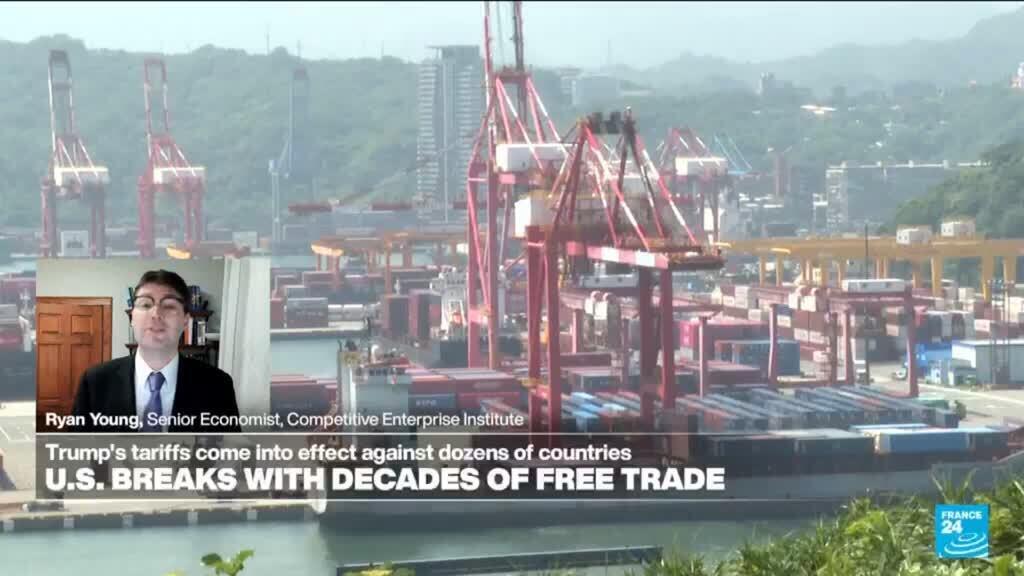Economic Impact of Tariffs Under Trump Administration
President Donald Trump initiated a series of higher import taxes impacting 60 countries and the European Union, a move aimed at reshaping international trade dynamics. This decision came in the context of a tense trade environment, characterized by escalating tariff threats that began months earlier. The administration's strategy was crafted with the hope of encouraging foreign investment in the United States from major economies such as the European Union, Japan, and South Korea.
The imposition of these tariffs was intended to enhance domestic production and reduce dependency on imports. However, the ripple effects of such tariffs have started to manifest in the U.S. economy, showing visible signs of strain. Industries reliant on imports have reported increased costs, which have often been passed on to consumers in the form of higher prices for goods. As a result, several sectors of the economy are experiencing disruptions that raise concerns about their long-term viability and growth potential.
Additionally, the tariffs have sparked retaliatory measures from affected countries, further complicating trade relations. Countries impacted by the new tariffs have taken steps to protect their own economies, leading to a cycle of escalating trade tensions. This back-and-forth has created uncertainty for U.S. businesses that rely on international trade, hindering their ability to plan for the future.
As Trump expressed expectations for substantial investments from foreign nations, the reality is more complex. Economic experts, including Ryan Young from the Competitive Enterprise Institute, emphasize that while the intention behind the tariffs may have been to stimulate investment in the U.S., the unexpected consequences can detract from that goal. Increased costs and trade barriers can discourage rather than promote investment, leading to the opposite of the intended effect.
The discussion surrounding these tariffs is multifaceted. On one hand, proponents argue that protecting domestic industries is crucial for maintaining jobs and competitiveness. On the other hand, critics point out the immediate adverse effects on consumers and businesses that depend on a global supply chain. The dynamics of international trade are delicate, and abrupt changes can lead to broader economic repercussions.
Overall, the economic fallout from Trump’s tariff policies highlights the complexities of trade relations in a globalized world. While the ambition may be to bolster the U.S. economy through protective measures, the path forward remains fraught with challenges that require careful navigation. As policymakers assess the effectiveness of these tariffs, they must weigh the benefits against the broader implications for growth, employment, and international relations. The future of U.S. trade policy may hinge on finding a balance that safeguards domestic interests while fostering cooperative relationships with international partners.












